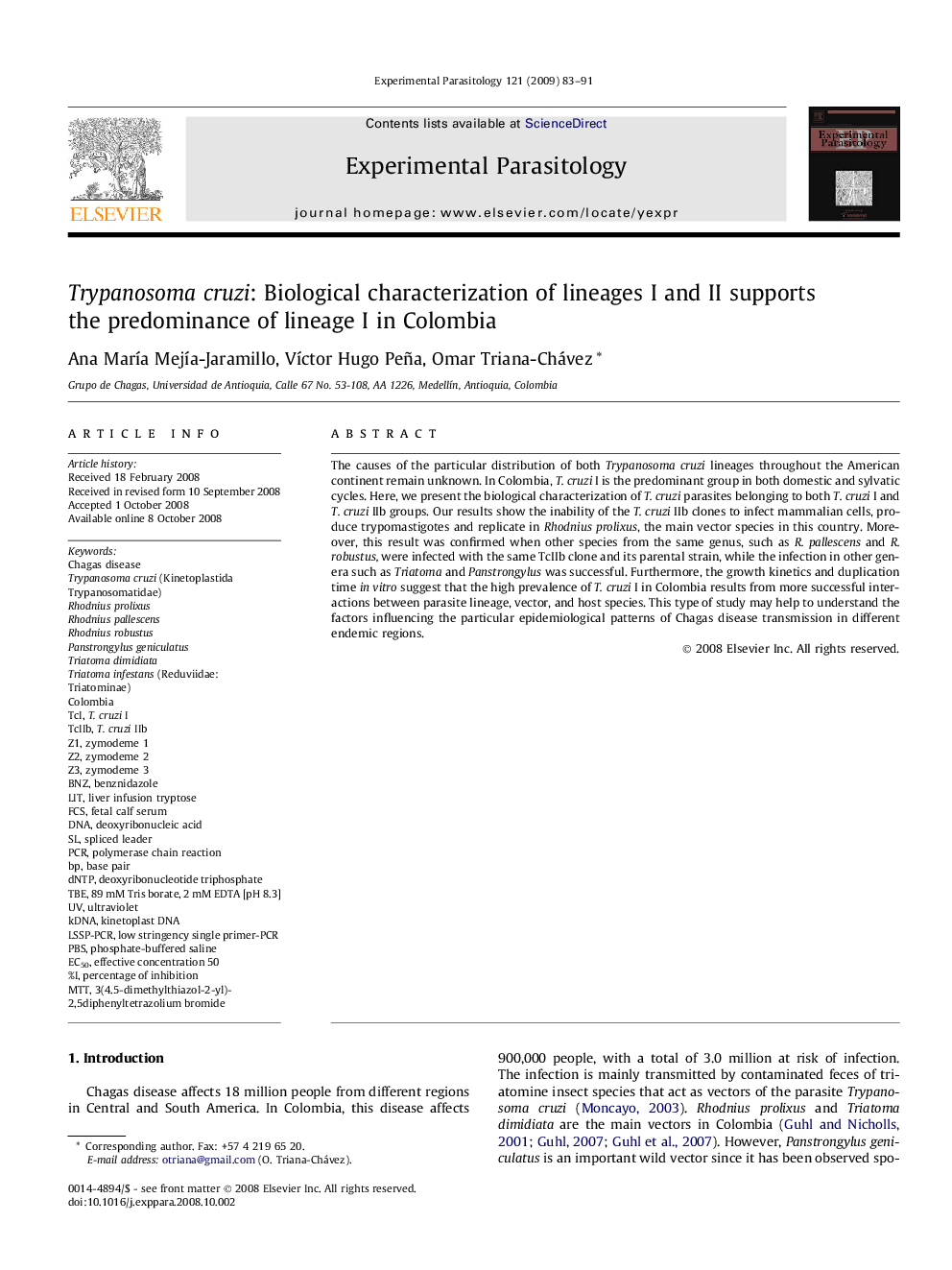| کد مقاله | کد نشریه | سال انتشار | مقاله انگلیسی | نسخه تمام متن |
|---|---|---|---|---|
| 4372042 | 1302559 | 2009 | 9 صفحه PDF | دانلود رایگان |
عنوان انگلیسی مقاله ISI
Trypanosoma cruzi: Biological characterization of lineages I and II supports the predominance of lineage I in Colombia
دانلود مقاله + سفارش ترجمه
دانلود مقاله ISI انگلیسی
رایگان برای ایرانیان
کلمات کلیدی
Panstrongylus geniculatusRhodnius robustusRhodnius pallescensBNZFCSTBEdNTPTCITriatoma dimidiataDNA - DNA یا اسید دزوکسی ریبونوکلئیکRhodnius prolixus - prolixus Rhodniusdeoxyribonucleic acid - اسید deoxyribonucleicBenznidazole - بنزنیدازولdeoxyribonucleotide triphosphate - تری فسفات دز اکسید ریبونوکلئوتیدliver infusion tryptose - تزریق کبدی تریپتوزbase pair - جفت پایهspliced leader - رهبر تقسیم شدهfetal calf serum - سرم گوساله جنینChagas disease - شاگاسLit - لیتpolymerase chain reaction - واکنش زنجیره ای پلیمرازPCR - واکنش زنجیرهٔ پلیمرازColombia - کلمبیا
موضوعات مرتبط
علوم زیستی و بیوفناوری
ایمنی شناسی و میکروب شناسی
انگل شناسی
پیش نمایش صفحه اول مقاله

چکیده انگلیسی
The causes of the particular distribution of both Trypanosoma cruzi lineages throughout the American continent remain unknown. In Colombia, T. cruzi I is the predominant group in both domestic and sylvatic cycles. Here, we present the biological characterization of T. cruzi parasites belonging to both T. cruzi I and T. cruzi IIb groups. Our results show the inability of the T. cruzi IIb clones to infect mammalian cells, produce trypomastigotes and replicate in Rhodnius prolixus, the main vector species in this country. Moreover, this result was confirmed when other species from the same genus, such as R. pallescens and R. robustus, were infected with the same TcIIb clone and its parental strain, while the infection in other genera such as Triatoma and Panstrongylus was successful. Furthermore, the growth kinetics and duplication time in vitro suggest that the high prevalence of T. cruzi I in Colombia results from more successful interactions between parasite lineage, vector, and host species. This type of study may help to understand the factors influencing the particular epidemiological patterns of Chagas disease transmission in different endemic regions.
ناشر
Database: Elsevier - ScienceDirect (ساینس دایرکت)
Journal: Experimental Parasitology - Volume 121, Issue 1, January 2009, Pages 83-91
Journal: Experimental Parasitology - Volume 121, Issue 1, January 2009, Pages 83-91
نویسندگان
Ana MarÃa MejÃa-Jaramillo, VÃctor Hugo Peña, Omar Triana-Chávez,